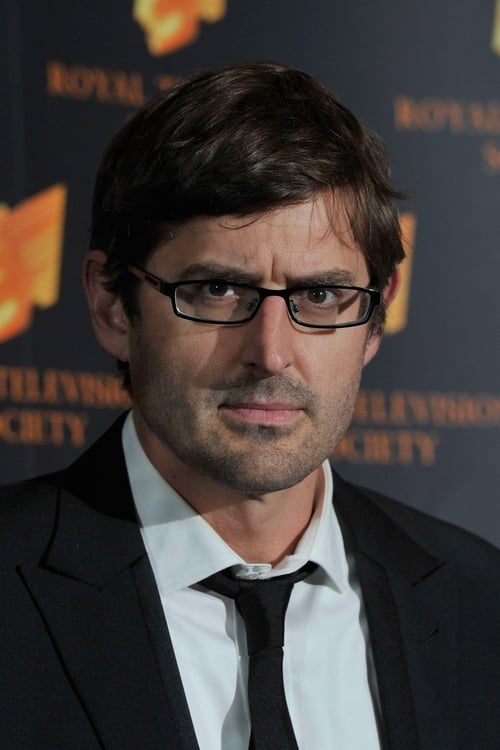Louis Theroux: The Ultra Zionists (2011)
Género : Documental
Tiempo de ejecución : 1H 0M
Director : Andy Wells
Sinopsis
Louis Theroux spends time with a small and very committed subculture of ultra-nationalist Jewish settlers. He discovers a group of people who consider it their religious and political obligation to populate some of the most sensitive areas of the West Bank, especially those with a spiritual significance dating back to the Bible. Throughout his journey, Louis gets close to the people most involved with driving the extreme end of the Jewish settler movement - finding them warm, friendly, humorous, and deeply troubling.
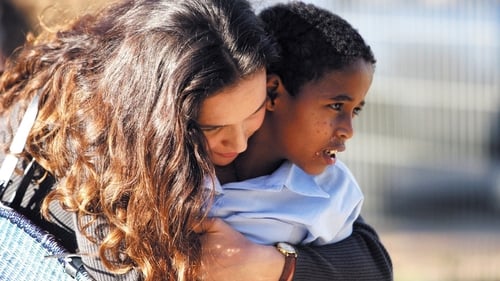
En 1984, miles de africanos procedentes de 26 países afectados por el hambre terminan en campamentos en Sudán. En una iniciativa de Israel y los Estados Unidos, se realiza una misión para llevar a miles de Judios de Etiopía a Israel. Una madre cristiana obliga a su hijo de nueve años a declararse un Judio para salvarle de la hambruna y la muerte. El niño llega a la Tierra Santa, dice que es huérfano, y es adoptado por una familia francesa sefardí de Tel Aviv, aunque crece con el temor de que se descubra su doble secreto: ni es Judio ni es huérfano, sólo es negro. Descubrirá el amor, la cultura occidental, el judaísmo, pero también el racismo y la guerra en los territorios ocupados.
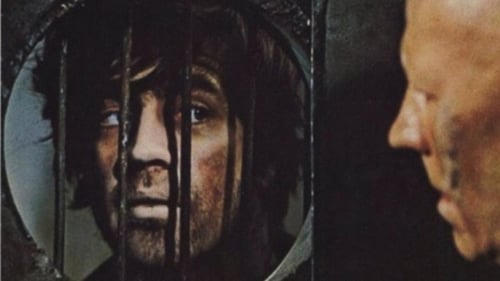
Adaptación de "The Fixer" (en español "El hombre de Kiev"), una novela del escritor estadounidense de origen judío Bernard Malamud, que ganó el premio Pulitzer en 1967. En la Rusia zarista, entre finales del XIX y principios del siglo XX, los judíos, acusados de terribles y sangrientos crimenes, fueron cruelmente perseguidos. Se trataba de una cortina de humo para desviar la atención del pueblo ruso de problemas más acuciantes, como el hambre y la miseria. En este contexto, un campesino judío trata de ocultar su origen para evitar la represión. Pese a todo, es acusado de crímenes que no ha cometido y, sin juicio previo, sufrirá todo clase de torturas físicas y psíquicas. (FILMAFFINITY)

Louis Theroux spends time with a small and very committed subculture of ultra-nationalist Jewish settlers. He discovers a group of people who consider it their religious and political obligation to populate some of the most sensitive areas of the West Bank, especially those with a spiritual significance dating back to the Bible. Throughout his journey, Louis gets close to the people most involved with driving the extreme end of the Jewish settler movement - finding them warm, friendly, humorous, and deeply troubling.
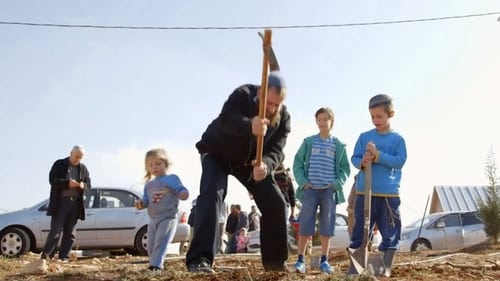
In the nearly 50 years since Israel's decisive victory in the 1967 Six-Day War, hundreds of thousands of Israeli citizens have established expanding communities in the occupied territories of the West Bank. Frequently coming into direct conflict with the region's Palestinian inhabitants, and facing the condemnation of the international community, the settlers have been viewed by some as the righteous vanguard of modern Zionism and by others as overzealous squatters who are the greatest impediment to the possibility of peace in the region.

Documentary tracing the history of the Jewish people from the destruction of the temple in AD 70 to the modern-day nation of Israel. Through scriptural and historical evidence, DNA, mathematics, and testimony from rabbis and pastors, it attempts to answer the question, "Who are God's chosen people?".

With God On Our Side takes a look at the theology of Christian Zionism, which teaches that because the Jews are God's chosen people, they have a divine right to the land of Israel. Aspects of this belief system lead some Christians in the West to give uncritical support to Israeli government policies, even those that privilege Jews at the expense of Palestinians, leading to great suffering among Muslim and Christian Palestinians alike and threatening Israel's security as a whole. This film demonstrates that there is a biblical alternative for Christians who want to love and support the people of Israel, a theology that doesn't favor one people group over another but instead promotes peace and reconciliation for both Jews and Palestinians.

Ze’ev Vladimir Jabotinsky? Most people don’t know much about him. Most people know he was the father of Herut movement, a revisionist. And who really knows what revisionism really means. A few people know that he translated Allan Poe’s Annabel Lee; even fewer read his historical novel, Samson. The Raven tries to fathom Jabotinsky’s deceptive character. The film follows his conflicted, controversial character, the meaningful choices, desires and abilities that eventually led him to end his life prematurely but left a huge mark on Zionism and Israel. - See more at: http://nfct.org.il/en/movies/the-raven-zeev-jabotinsky/#sthash.WoPKutbi.dpuf

Compiled after 15 months filming and editing, this fast-moving, professional video documentary will give you a unique education on the inner teachings of Judaism and the Talmud. Through the television camera "The Other Israel" takes you where few Christian scholars have gone before.

Spanning over 2,000 years, this study looks at the complex relationship between Jewish and Catholic thought from a social and historical perspective. Examining different significant moments for both religions throughout the centuries, this commentary on the book analyzes and explains the conflicts that have arisen between the two religions since their beginnings.

Based on the book, The Illustrated Protocols of Zion. The original Protocols of Zion have been read by countless millions of people over the last 117 years. This movie takes the basic assertions of the protocols and proves them in the present time. It is a brand new edition of the classic work which takes the “old” Protocols of Zion and shows, using present-day practical examples, its prescience and astonishing accuracy—despite being more than century old.

The Zionist Matrix of Power is an amazing video that exposes the real seats of power in the world. It demonstrates the three most important, Media, Finance, and Politics. This video shows the extremists that now dominate this matrix that leads the West the destruction and the World to war and degeneracy.

Palestinians and Israelis pursue conflicting visions of justice in the West Bank, zeroing in on the explosive issue of the Israeli settlements: its protagonists are both Israeli settlers and the Palestinians and Israelis who oppose them.

A multi-generational journey exploring the archives of the director's grandfather Ephraim Erde, an official Zionist photographer from the 30s, confronted with the director's current vision in an attempt to create an utopia of her own.
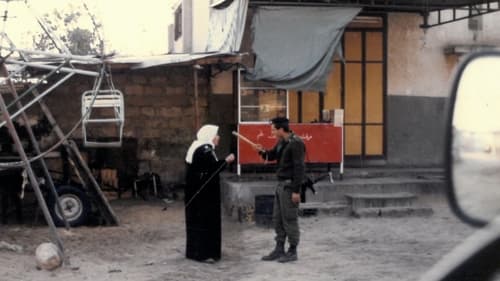
Una explicación exhaustiva de cómo ocurre y qué consecuencias provoca la ocupación militar de un territorio invadido, utilizando como ejemplo paradigmático la historia reciente de Israel y de los territorios palestinos, Cisjordania y la Franja de Gaza, desde 1967, cuando tuvo lugar la guerra de los Seis Días, hasta la actualidad; un relato del cineasta Avi Mograbi enriquecido por los testimonios de veteranos del ejército israelí.
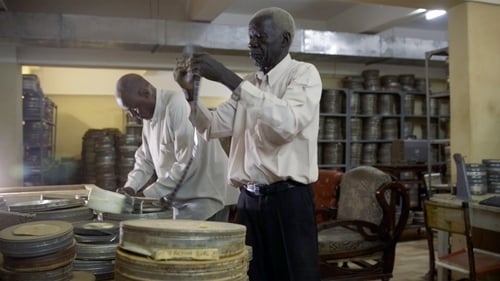
Jomu’a is a Palestinian who lives in a refugee camp. Every early morning, he goes to the entrance of the refugee camp to earn his living selling coffee. He tries to find additional work but the only job available is to demolish a house.

A self-described liberal from cosmopolitan Tel Aviv, Zaki wanted to get behind the politics of Israel’s controversial settlements in the occupied territories — so she moved there, temporarily, setting up an improvised cafe where she could chat with settlers from her own generation.
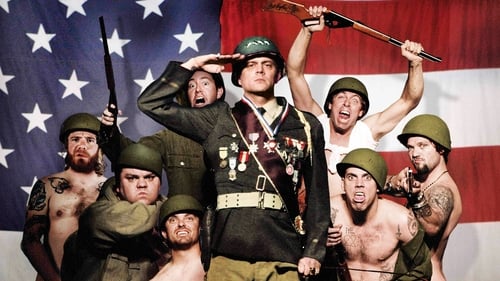
¡Han vuelto! En una película con todo el material que no pudieron incluir en la número dos. Te reirás hasta llorar y desencajar tu mandíbula a medida que Johny Knoxville y los chicos te introducen entre bambalinas con Jackass 2.5, hablando de estas increíbles e inéditas acrobacias, bromas y otros actos aleatorios de malicia y estupidez en unas hilarantes entrevistas nuevas. 90 minutos de metraje extra y de contenidos especiales. Jackass 2.5 es tan insólito, sucio y directamente sexy como sus predecesores, pero a unos niveles que no podrían verse en los cines.
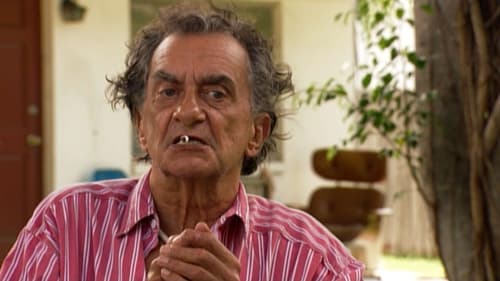
En 1972 se estrenó una película que convulsionó la realidad social estadounidense: Garganta Profunda. Estrenada en el mismo momento en que los movimientos nacionales para la liberación sexual, la igualdad de derechos y los valores contraculturales estaban alcanzando su punto álgido, esta película sexualmente explícita se convirtió inesperadamente en el epicentro de una tormenta social y política sin precedentes. El gobierno de Nixon y el FBI iniciaron una cruzada contra la película y sus creadores. Inside Deep Throat (Dentro de Garganta Profunda) es un documental en el que los directores Randy Barbato y Fenton Bailey nos proponen un viaje a los años 70, a la situación social, cultural y política de los norteamericanos, y al intenso impacto que provocó una película pornográfica, cuyo título llegó incluso a servir de referente al escándalo de Watergate que acabó costando la presidencia a Nixon.

